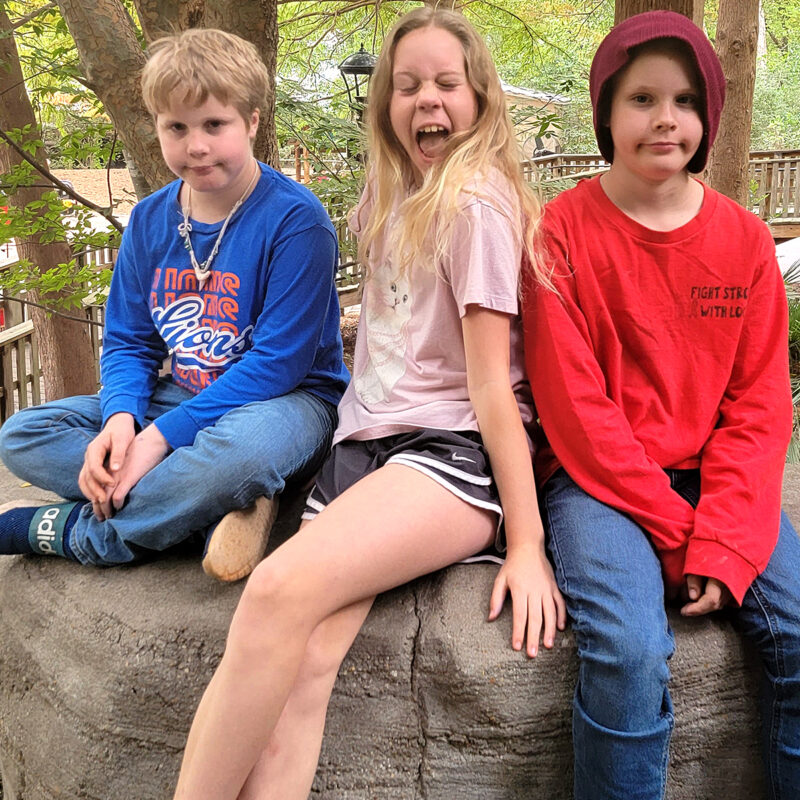Parenting is challenging, even when life is going smoothly. But when a child has cancer, the entire family can become stressed, worried, angry, and scared. Parents usually find themselves feeling overwhelmed, and children may begin behaving in negative ways. Parents need to develop a consistent, healthy response to negative behaviors to help children learn appropriate ways to deal with overwhelming emotions.
 To help keep the family emotionally balanced, parents need to continue to consistently enforce the family rules. Stressed children feel safe in homes with regular, predictable routines. Make an effort to treat all of your children as normal as possible.
To help keep the family emotionally balanced, parents need to continue to consistently enforce the family rules. Stressed children feel safe in homes with regular, predictable routines. Make an effort to treat all of your children as normal as possible.
It is important to provide acceptable ways for children to release anger and overwhelming emotions. Some options can include going on a walk, painting, molding clay, or even yelling into a pillow. Teach your children visualization skills and relaxation techniques to cope with strong feelings. It’s also important to talk about feelings and identify the causes.
There are many ways parents can help their children through their difficulties:
- Listen to your child with empathy.
- Teach your child to talk about their feelings.
- Be open and honest.
- Model the behavior you desire.
- Help your child recognize when they are losing control.
- Have clear rules and consequences for inappropriate behavior.
- Give frequent reassurances of your love.
- Discuss acceptable outlets for anger.
- Acknowledge and compliment good behaviors.
- Recognize when behaviors result from stress, pain, or medications.
- Seek professional help if behaviors become unmanageable.
Shelly’s Parenting Journey
Shelly, a mother of ten-year-old triplets, Xavier, Logan, and Shelby-Jae, shares the parenting challenges she faced while raising two children diagnosed with leukemia and the valuable lessons she learned along the way.
When Xavier was diagnosed at the tender age of four, Shelly’s instinct was to provide him with anything he wanted to ease his suffering. This pattern continued when Logan, too, was diagnosed at age six. Even though Shelby-Jae never faced cancer, Shelly’s guilt over her focus on the boys led to indulging Shelby-Jae as well.
Though Xavier has been off treatment for three years, he continues to struggle with behavioral issues. Shelly recognizes the need for change and is now encouraging her kids to take on more responsibilities. Yet, challenges persist with occasional tantrums and resistance to simple chores.
Shelly offers sound advice to other parents and caregivers of children with cancer: “Approach your child with empathy, but understand that you shouldn’t allow behaviors now that you can’t maintain long-term.” She suggests, “Keep rules the same after the diagnosis if you want to raise good humans. Encourage your child to do manageable chores when they are well enough.” Another helpful tip is to limit the number of toys that are gifted from the hospital or well-meaning family and friends.
Children look toward their parents to learn how to cope and handle adversity. It is extremely difficult to parent effectively while juggling the complexities of a childhood cancer diagnosis and treatment… but helping your children navigate this experience is vital.
Don’t be afraid to seek professional help for parenting guidance or if you become concerned by your child’s behavior. To learn more about coping with the emotional aspects of childhood cancer, click here.

